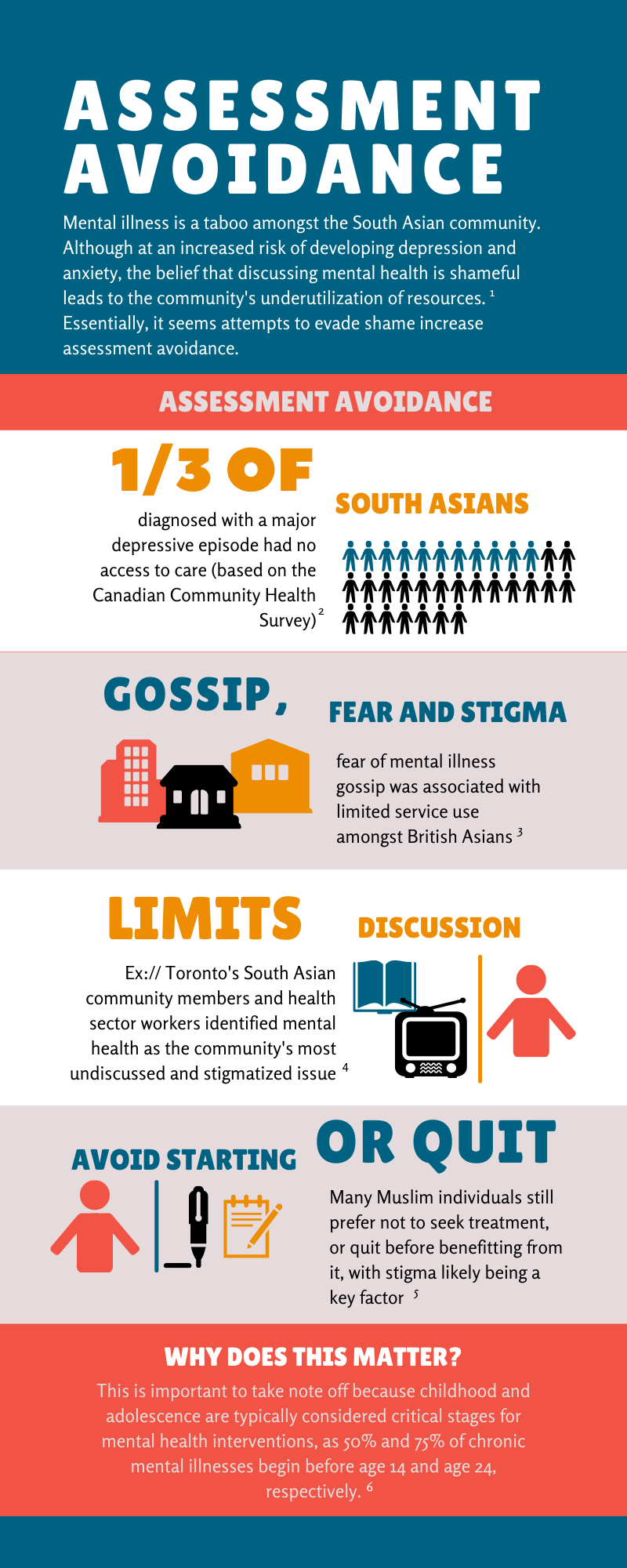Written by: Simrit Dhillon
One of my inspirations in deciding to study psychology as one of my undergraduate degrees was the fact that mental health literacy and communication is so limited within our [the South Asian] community. I think both children and parents often find it challenging to address and discuss mental health and related topics with each other; regardless of age, generation, or gender, mental health and discussion surrounding it has been and continues to be a taboo topic for South Asian families. This often results in a disconnect between parents and their children, when it comes to tackling mental health and related issues. A lack of communication regarding mental health can make for challenging situations, for both youth and their parents, particularly when dealing with mental illness. Therefore, it is important for there to be some form of dialogue regarding this conversation between South Asian parents and children.
How Parents can listen to their Children talk about Mental Health
One key thing for South Asian parents to note is how crucial their active listening in these circumstances is: even if it feels as if what your child is saying does not make sense, it is important to still let them have a chance to disclose their thoughts and feelings. Thus, parents could consider avoiding judgment during these times of sharing and discussion, and try to talk through the issues with their child with a strong focus on reflective listening.(1)
This would mean paying attention to what the child is saying, what they are feeling, looking for nonverbal cues, and responding with all of those signs in mind with words that reflect what the child themselves is using. Additionally, parents can give positive affirmations to their child, so they feel that their parents are still proud of them and love them, regardless of the potential turmoil discussing mental health and related concerns can stir up.(2)
How Children can talk to their parents about Mental Health
It can be incredibly intimidating for children to open up to their parents about mental health – there may be a lingering fear that you will be judged, your concerns will be met with dismissal, or that you will feel unheard.(3) When it comes to approaching your parents about mental health topics or concerns, it may prove useful to consider bringing up these conversations at the right time.
This could include a comfortable setting wherein no one will raise their voice, or a private location where you will be free to share. Another tip to consider is to be open and honest when communicating; although this can be somewhat nerve-wracking, it will help you clearly explain how you are feeling and what you are experiencing.(4) Moreover, this may help with the clarity of the conversation as well, making it easier for parents to understand. Similarly to this, it could prove useful to avoid any complex terminology when discussing mental health with parents, since they may not have the same level of mental health literacy that many children are fortunate enough to have.
How Parents can talk to their Children about Mental Health
Although it is important for parents to be open to listening to their children when it comes to mental health topics, and for children to feel comfortable to share their thoughts on these matters with their parents, it is also important for parents to be able to share their beliefs and experiences with their children. However, in this situation, it is important for parents to note that their children are in a more vulnerable position than they are, and they should thus share accordingly (e.g. perhaps avoiding more emotional topics that could cause trauma or intense concern for the children). That being said, parents can open the floor for discussions about mental health, perhaps by trying to connect with their children about things they felt at their age, or things they are currently experiencing. Some tips parents can consider include:
being clear and easy-to-understand in your vocabulary and word choice;
choosing a safe space and time to begin the conversation;
and matching the tone and speed that your child seems to be the most receptive to (e.g. slowing down if they seem unsure or confused, etc.). (5)
How Children can listen to their Parents talk about Mental Health
Likewise, when it comes to children listening to their parents’ thoughts and opinions about mental health, many of the aforementioned strategies that parents use when listening to children could be employed. For instance, avoiding judgment when your parents share their mental health struggles can be crucial; a potential immediate reaction may be to think they cannot possibly be experiencing these situations, but it is important to realize that this is exactly what we hope to avoid when we are in their shoes. Employing active listening, looking for nonverbal cues, using reflective listening, and letting them know you love them can all be applicable strategies in this situation as well.

Contributor: Simrit Dhillon
References
- Mental Health America. Time to talk: Tips for talking about your mental health. n.d.
Available from: https://www.mhanational.org/time-talk-tips-talking-about-your-mental-
health - Nemours Teens Health. Talking to parents about depression. n.d. Available from:
https://kidshealth.org/en/teens/talk-depression.html - Ehmke R. How to talk to your parents about getting help. Child Mind Institute. n.d.
Available from: https://childmind.org/article/how-to-talk-to-your-parents-about-getting-
help-if-you-think-you-need-it/ - Families for Depression Awareness. How to talk to your parents about your mental
health. n.d. Available from: http://familyaware.org/how-to-talk-to-your-parents-about-
your-mental-health/ - American Academy of Child & Adolescent Psychiatry. Talking to kids about mental
illnesses. 2017. Available from:
https://www.aacap.org/AACAP/Families_and_Youth/Facts_for_Families/FFF-
Guide/Talking-To-Kids-About-Mental-Illnesses-084.aspx
Infographic References
- Karasz A, Gany F, Escobar J et al. Mental health and stress among South Asians. J.
Immigr. Minor. Health. 2019;21(Suppl 1):7-14. doi: 10.1007/s10903-016-0501-4 - Gadalla TM. Ethnicity and seeking treatment for depression: A Canadian national study.
Canadian Ethnic Studies, 2010;41(3):233-245. doi: 10.1353/ces.2010.0042 - Bradby H, Varyani M, Oglethorpe R, et al. British Asian families and the use of child and
adolescent mental health services: A qualitative study of a hard to reach group. Soc. Sci.
Med. 2007;65(12):2413-2424. https://doi.org/10.1016/j.socscimed.2007.07.025 - Islam F, Khanlou N, & Tamim H. South Asian populations in Canada: Migration and
mental health. BMC Psychiatry. 2014;14:154. https://doi.org/10.1186/1471-244X-14-154 - Ciftci A, Jones N, & Corrigan PW. Mental Health Stigma in the Muslim Community.
Journal of Muslin Mental Health. 2012;7(1). doi: http://dx.doi.org/10.3998/jmmh.
10381607.0007.102 - Islam F, Multani A, Hynie M, et al. Mental health of South Asian youth in Peel Region,
Toronto, Canada: A qualitative study of determinants, coping strategies and service
access. BMJ Open. 2017;7(11). https://dx.doi.org/10.1136% 2Fbmjopen-2017-018265



0 Comments